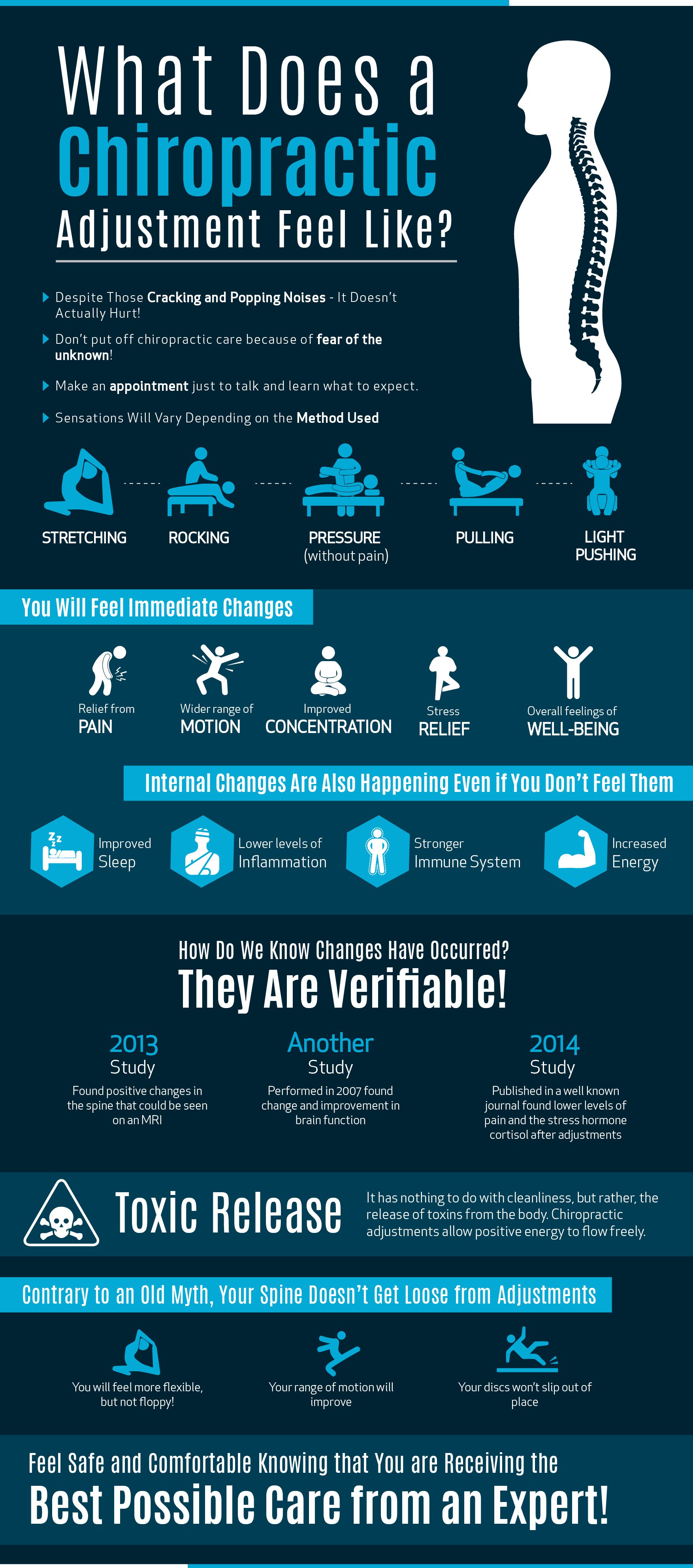Are Chiropractic Care Adjustments Habit-Forming? Differentiating Reality From Myth
Are Chiropractic Care Adjustments Habit-Forming? Differentiating Reality From Myth
Blog Article
Post By-Rode Gunn
You could have listened to that chiropractic adjustments can result in an addicting dependence, however that's a common misconception. Several individuals discover alleviation without establishing any type of kind of addiction. It is necessary to recognize real objective of these modifications and exactly how they suit your overall wellness method. So, exactly what does the scientific research claim about chiropractic care and your well-being? Let's explore integrative physiatry .
Recognizing Chiropractic Care Adjustments and Their Function
When you think of chiropractic care changes, it's important to comprehend their function and just how they work. These modifications intend to fix imbalances in your spine and joints, promoting much better alignment and motion. By applying controlled force to specific areas, chiropractic doctors aid relieve pain, enhance function, and boost your total wellness.
types of chiropractic care focuses on your body's ability to recover itself, highlighting the link in between the spine and the nerves. When your spine is lined up, it can lower nerve disturbance, allowing your body to work optimally.
Normal adjustments might additionally aid protect against future problems, keeping you active and pain-free. Eventually, chiropractic adjustments offer to support your health and wellness, enhance movement, and enhance your quality of life.
Common Myths Concerning Addiction and Chiropractic Care
Lots of people hold misunderstandings about the partnership between chiropractic care and dependency treatment. One usual myth is that chiropractic modifications develop an addiction-like dependency. Actually, numerous patients find relief from discomfort and discomfort, yet this doesn't suggest they establish a mental or physical dependency.
Another myth is that chiropractic doctors are just attempting to maintain you returning for even more adjustments. A lot of chiropractic specialists prioritize your wellness and go for long-term health and wellness rather than regular visits.
Furthermore, some think chiropractic care can replace typical addiction treatments, but it should complement, not replace, evidence-based therapies. Recognizing these myths can aid you make informed choices about your health and wellness without falling target to false information.
The Scientific Research Behind Chiropractic Adjustments and Patient Experience
While some may question the efficiency of chiropractic care modifications, a growing body of study supports their function in minimizing discomfort and enhancing general feature.
Researches show that back manipulation can decrease pain from conditions like lower back pain, stress frustrations, and neck pain. When you go through chiropractic treatment, the modifications intend to recover correct positioning, boosting your body's natural healing capabilities.
Lots of people report boosted wheelchair and a higher sense of health after treatment. Furthermore, the healing partnership you build with your chiropractic specialist can boost your experience, as they supply individualized treatment tailored to your needs.
This mix of scientific backing and positive person experiences aids make clear why chiropractic changes work for numerous people seeking alleviation.
Final thought
To conclude, chiropractic care adjustments aren't habit forming; they're made to improve your wellness and promote positive health care. By exposing the misconceptions surrounding reliance, it's clear that these treatments can provide significant relief without developing a cycle of dependency. Accepting chiropractic treatment as a corresponding method to standard therapies can lead to far better health and wellness outcomes. So, if https://www.wtvq.com/campbellsville-university-to-open-school-of-chiropractic/ taking into consideration modifications, felt confident that they're about boosting your quality of life, not developing a dependence.
